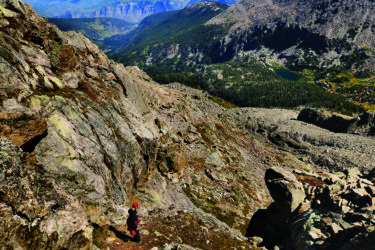The Local newsletter is your free, daily guide to life in Colorado. For locals, by locals.
Even within the picturesque confines of Colorado’s South Park region, Collard Ranch stands apart. Flanked by Pike National Forest and surrounded by the Lost Park Wilderness, the Kenosha Mountains, and the Mosquito Range, the property stretches across 1,860 spectacular acres. A five-mile section of Tarryall Creek, a tributary of the South Platte River, winds through the parcel, creating a wetland ecosystem that draws elk, mountain plovers, and boreal toads.
Read More: How To Get Started Hunting in Colorado

Collard Ranch presented a rare opportunity, then, when its owners put the land up for sale in 2023. Rather than risk the acreage being snapped up by a private buyer, Colorado Parks and Wildlife (CPW) purchased the property this past March. As unique as Collard Ranch’s landscape is, however, this type of acquisition has become common in Colorado—thanks, in large part, to hunters. In 2006, CPW launched the Colorado Wildlife Habitat Protection Program, an initiative that raises money through the Habitat Stamp, a now $12.15 annual fee tacked onto hunting and fishing licenses. (You can nab a lifetime stamp for $364.63.) CPW uses those funds to help buy and preserve important ecosystems under its State Wildlife Area (SWA) designation. In turn, hunters and anglers get to reap the land’s bounty—under strict conservation rules imposed by CPW, of course. Since the Habitat Stamp’s inception, the program has helped to secure 146,300 acres of land through the SWA designation.
To buy Collard Ranch, CPW used $2 million in stamp money and $6.25 million from Great Outdoors Colorado, which invests state lottery proceeds to preserve the wild. The state will eventually open the property as the Collard Ranch State Wildlife Area, where anglers will cast their lines into Tarryall Creek in search of trout and hunters will pursue mule deer, pronghorn antelope, and the litany of elk that migrate across the property during the fall. “All hunters are conservationists,” says Kara Van Noose, a public information officer with CPW. “I know that sounds strange, but hunters care about wildlife.” After all, the sport is not possible without it.








